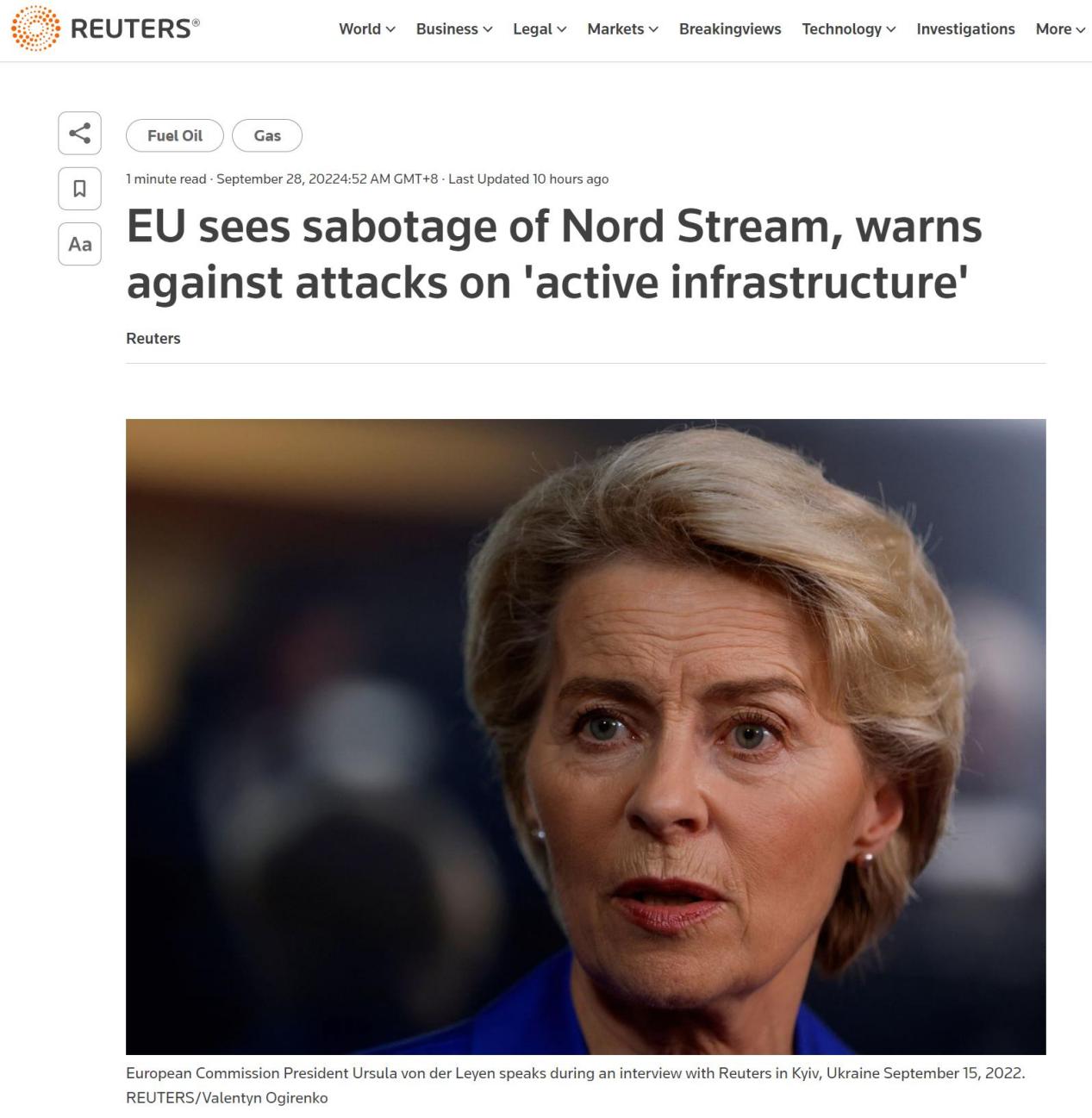European leaders blame Russian ‘sabotage’ after Nord Stream explosions
European countries on Tuesday raced to investigate unexplained leaks in two Russian gas pipelines Nord Stream running under the Baltic Sea near Sweden and Denmark.
Measuring stations in Sweden registered strong underwater explosions in the same area of sea as the gas leaks that occurred in the Nord Stream 1 and 2 pipelines on Monday, Swedish television (SVT) reported on Tuesday. According to the SVT, the first explosion was recorded at 2:03 a.m. local time (00:03 GMT) on Monday and the second at 7:04 p.m.(17:04 GMT) on Monday evening.
“There is no doubt that these were explosions,” Bjorn Lund, lecturer in seismology at the Swedish National Seismic Network (SNSN), was quoted by the SVT as saying on Tuesday.”You can clearly see how the waves bounce from the bottom to the surface.” One of the explosions had a magnitude of 2.3 on the Richter scale, similar to a perceptible earthquake,and was registered by 30 measuring stations in southern Sweden.
The government of Denmark considers the Nord Stream gas pipeline leaks “deliberate actions,” Prime Minister Mette Frederiksen said here on Tuesday. “It is the clear assessment by authorities that these are deliberate actions. It was not an accident,” Frederiksen told journalists.

European Commission chief Ursula von der Leyen on Tuesday said the leaks of the Nord Stream pipelines were caused by sabotage, and warned of the “strongest possible response” should active European energy infrastructure be attacked. “Spoke to (Danish Prime Minister Mette) Frederiksen on the sabotage action Nordstream,” von der Leyen said on Twitter, adding it was paramount now to investigate the incidents to get full clarity on the “events and why.”

In Moscow, Kremlin spokesman Dmitry Peskov told reporters,” “No option can be ruled out right now.”
European leaders said Tuesday they believed dual explosions that damaged pipelines built to carry Russian natural gas to Europe were deliberate, and some officials blamed the Kremlin, suggesting the blasts were intended as a threat to the continent.
The damage did not have an immediate impact on Europe’s energy supplies. Russia cut off flows earlier this month, and European countries had scrambled to build up stockpiles and secure alternative energy sources before that. But the episode is likely to mark a final end to the Nord Stream pipeline projects, a more-than-two-decade effort that deepened Europe’s dependence on Russian natural gas – and that many officials now say was a grave strategic mistake.